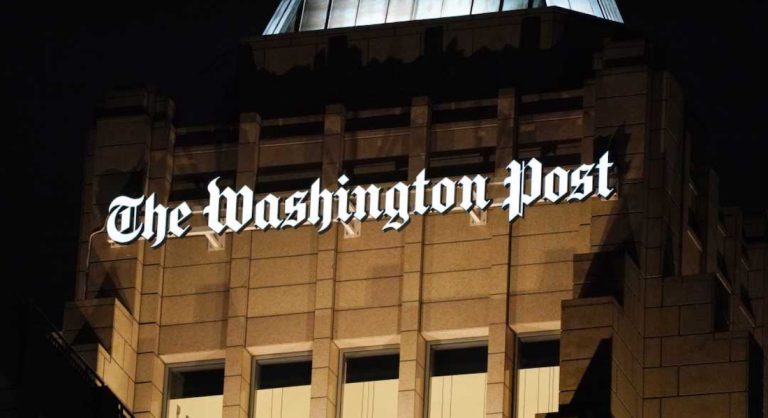
From Founding to Modern Challenges: A 150-Year Saga
New York, N.Y. — The Washington Post, a pillar of American journalism, has shaped public discourse for nearly 150 years.
Its evolution from a local paper to a global media force reflects resilience, innovation, and a commitment to truth, though recent controversies under Jeff Bezos’ ownership have sparked debate [Bezos: Luce Index™ score: 77/100].
Founding and Early Struggles
The Washington Post began on December 6, 1877, when Stilson Hutchins, a Missouri publisher, launched it in Washington, D.C. With a circulation of 10,000, it aimed to compete in the capital’s crowded media market. Financial woes led to its sale in 1889 to Frank Hatton and Beriah Wilkins. In 1905, John R. McLean took over, pushing sensationalism that boosted readership but hurt credibility. By 1933, bankruptcy forced its sale to Eugene Meyer for $825,000, marking a turning point.
The Meyer-Graham Era: Defining Moments
Eugene Meyer restored the Post’s integrity, investing in talent and independence. In 1946, Philip Graham, Meyer’s son-in-law, modernized operations. After Philip’s death in 1963, Katharine Graham became publisher, a trailblazer for women in media. Her leadership shone during the Pentagon Papers in 1971, when the Post defied government pressure to publish classified Vietnam War documents. The Watergate scandal, exposed by Bob Woodward and Carl Bernstein, led to Richard Nixon’s 1974 resignation and earned a Pulitzer Prize, cementing the Post’s global stature.
Navigating Change and Digital Growth
The late 20th century brought challenges: television and declining print readership strained finances. Donald Graham, Katharine’s son, diversified the Post’s portfolio, but the internet disrupted traditional models. By 2013, the Graham family sold the paper to Jeff Bezos, Amazon’s founder, for $250 million. Bezos revitalized the Post, investing in digital platforms and hiring journalists. Under editor Marty Baron, it broke stories on Edward Snowden and the Trump administration, earning multiple Pulitzer Prizes. Digital subscriptions soared past three million, and innovations like Arc XP made the Post a digital leader.
Bezos’ Ownership: Triumphs and Tensions
Bezos’ tenure has been transformative but contentious. His business ties and perceived personal relationships with Donald Trump [Luce Index™ score: 35/100] have raised concerns about editorial independence.
Critics argue Bezos’ influence over the editorial process, particularly in coverage
of Trump and Amazon-related issues, has compromised the Post’s objectivity.
This has led to resignations of several prominent staff writers, who cited concerns over editorial constraints. Public debates over bias and trust have intensified, challenging the Post’s slogan, “Democracy Dies in Darkness,” adopted in 2017. Despite these issues, the Post remains a vital voice, navigating economic pressures and disinformation.
A Resilient Legacy
The Washington Post’s history reflects its ability to adapt while upholding journalistic principles. From Stilson Hutchins’ vision to Katharine Graham’s courage and Jeff Bezos’ digital push, it has faced adversity head-on. As it nears its 150th anniversary, the Post must address internal and external challenges to preserve its role as a guardian of democracy
The Washington Post: An American Legacy Tested Once Again (June 29, 2025)
Summary in 75 Words
The Washington Post, founded in 1877, grew from a D.C. paper into a global journalistic powerhouse. Its Watergate coverage and Pentagon Papers defiance defined its legacy. Under Jeff Bezos, it embraced digital innovation but faced criticism over editorial control tied to his Donald Trump ties, prompting staff resignations. This feature traces its history, triumphs, and ongoing struggles to maintain independence.
#WashingtonPost #JournalismHistory #Watergate #MediaLegacy
Tags: Washington Post, journalism, Watergate, Katharine Graham, Jeff Bezos,
Donald Trump, Pulitzer Prize, Pentagon Papers, digital journalism
